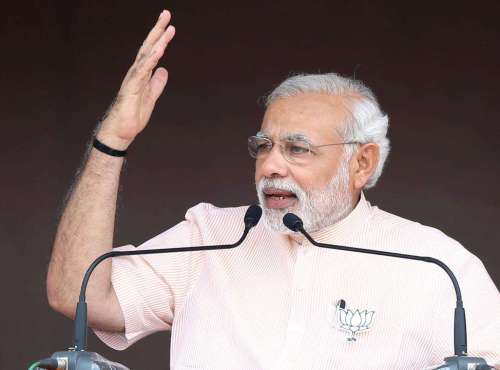 By Ranjana Narayan
By Ranjana Narayan
Prime Minister Narendra Modi will have his first meeting with German Chancellor Angela Merkel in Australia next month, a meeting that almost took place in July in Berlin but was put off following the German leader’s decision to go to Brazil to cheer her country at the World Cup football finals.
A bilateral meeting between Modi and Merkel is very much in the works on the sidelines of the Nov 15-16 G 20 Summit at Brisbane, it has been reliably learnt. Besides Merkel, another likely important bilateral could be with British Prime Minister David Cameron.
A Modi-Merkel meeting was being worked out during his halt in Germany on way to Brazil for the BRICS summit in July. However, it could not transpire as the German chancellor, a soccer enthusiast, preferred to be present at the FIFA World Cup final in Rio de Janeiro, which it won.
Modi had congratulated Merkel for her country’s victory on his way back from Brazil where the leaders of Brazil, Russia, India, China and South Africa met in Fortaleza July 15-17.
Modi flies to Australia Nov 14 from Myanmar, where he would attend the East Asia Summit – another major meeting place with leaders from 18 countries, including the 10 member bloc of the Association of Southeast Asian Nations.
His visit will be the first by an Indian prime minister to Australia since 1986 when Rajiv Gandhi came to meet Bob Hawke.
Modi arrives in the evening of Nov 14 at Brisbane, the capital and most populous city in the Australian state of Queensland, where the G 20 summit is to be held. He will then proceed to Sydney, Australia’s famous harbour city and capital of New South Wales, where the Indian expatriate community is planning an enthusiastic MSG-II, or a Madison Square Garden-like reception, for the Indian prime minister.
The Indian Australia Community Foundation (IACF), the main organising group, said there has been an overwhelming demand for tickets for the Nov 17 community reception programme at Sydney’s AllPhones Arena. According to media reports, event organisers in Sydney say that more than 21,000 people have already registered through their local community organisations to attend the event in Sydney, which can only seat 16,000.
He will address the Australian Parliament on Nov 18, in Canberra, the first Indian prime minister to do so. Among the host of world leaders coming to Australia for the G20, only three will address federal parliament: China’s Xi Jinping, Britain’s David Cameron and Modi.
Modi is to also be accorded a grand reception at the famous Melbourne Cricket Grounds hosted by Prime Minister Tony Abbott.
At the banquet in Melbourne, organisers are planning a presentation of new historical, archaeological and linguistic evidence pointing to human migration from the Indian subcontinent to Australia around 5,000 years ago.
It will be the second time in three months that Abbott and Modi are meeting. Abott was the first head of government to be received in India by the new Modi government when he arrived in India in September.
Both countries have already agreed to the terms of a deal that will allow Australia to export uranium to India.
The G20 membership comprises a mix of the world’s largest advanced and emerging economies, representing about two-thirds of the world’s population, 85 percent of global gross domestic product and over 75 percent of global trade.
The members of the G20 are Argentina, Australia, Brazil, Canada, China, France, Germany, India, Indonesia, Italy, Japan, Republic of Korea, Mexico, Russia, Saudi Arabia, South Africa, Turkey, the United Kingdom, the United States and the European Union.